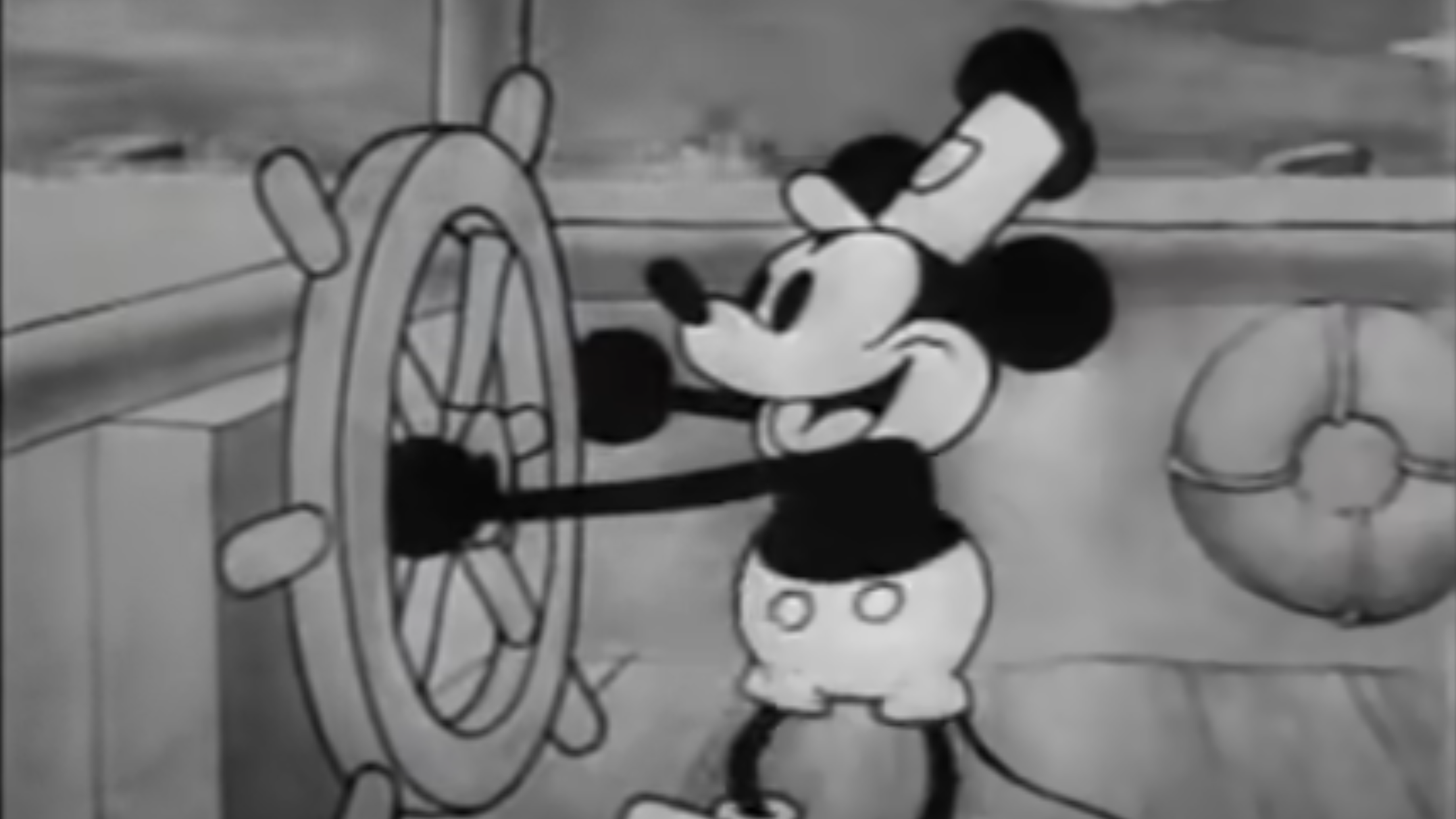The public domain Steamboat Willies are already here
The earliest version of Mickey Mouse has entered public domain, and he's already getting scary

Steamboat Willie, the earliest version of Disney’s Mickey Mouse, entered the public domain on January 1, 2024, and on January 1, 2024, the Steamboat Willie parodies began to roll in. As one might expect from previous examples (see Winnie The Pooh: Blood And Honey), the biggest projects to take advantage of the expired copyright are horror-based, because nothing’s scarier than a kid’s cartoon committing senseless murder. Enter Mickey’s Mouse Trap, the latest low-budget slasher to cash in on such a concept.
“We just wanted to have fun with it all. I mean it’s Steamboat Willie‘s Mickey Mouse murdering people. It’s ridiculous,” says Mickey’s Mouse Trap director Jamie Bailey in a statement (via The Hollywood Reporter). “We ran with it and had fun doing it and I think it shows.”
The film, which features actual clips from the Steamboat Willie cartoon, doesn’t yet have a distributor but is expected to be released in March. Per the synopsis, “It’s Alex’s 21st birthday, but she’s stuck at the amusement arcade on a late shift so her friends decide to surprise her, but a masked killer dressed as Mickey Mouse decides to play a game of his own with them which she must survive.”
Not long behind is an untitled horror comedy from Steven LaMorte, director of the 2022 Grinch parody The Mean One. LaMorte and fellow producers Amy Schumacher and Martine Melloul will team up with Terrifier 2 producers Steven Della Salla and Michael Leavy for the project, per Variety. “Steamboat Willie has brought joy to generations, but beneath that cheerful exterior lies a potential for pure, unhinged terror,” LaMorte said in a press release (via Variety). “It’s a project I’ve been dreaming of, and I can’t wait to unleash this twisted take on this beloved character to the world.”
In addition to the films, there are also multiple horror games playing with Steamboat Willie’s image. Nightmare Forge’s Infestation 88 follows exterminators being stalked by a freaky-looking Mickey in a warehouse, while Fumi Games’ Mouse, which debuted a trailer in early December, trades in on the animation aesthetic for “a gritty, jazz-fueled shooter.”
In the meantime, Steamboat Willie is being gleefully meme’d online, made to do anything from the mundane to the obscene. The particular delight in this copyright expiration comes not just from the cultural ubiquity of the Mickey Mouse character, but from Disney’s direct intervention in United States copyright law. On multiple occasions, the conglomerate lobbied to extend copyright, most notably with the Sonny Bono Copyright Term Extension Act, which extended copyright terms to life of the author plus 70 years or, for works made for hire by a corporation, 95 years from publication or 120 years after creation, whichever end is earlier. The 1998 law became known as the “Mickey Mouse Protection Act” due to Disney’s involvement.
The copyright has finally expired on the 1928 Steamboat Willie version of the character only, which is specifically black-and-white, non-verbal, and has no pupils, among other characteristics. “More modern versions of Mickey will remain unaffected by the expiration of the Steamboat Willie copyright, and Mickey will continue to play a leading role as a global ambassador for the Walt Disney Company in our storytelling, theme park attractions, and merchandise,” a Disney spokesperson said in a statement regarding the situation (via Deadline). “We will, of course, continue to protect our rights in the more modern versions of Mickey Mouse and other works that remain subject to copyright, and we will work to safeguard against consumer confusion caused by unauthorized uses of Mickey and our other iconic characters.”
Additional characters and works that entered the public domain at the start of 2024 include Tigger from A.A. Milne’s The House On Pooh Corner, Buster Keaton’s The Cameraman, Charlie Chaplin’s The Circus, Lady Chatterley’s Lover by D. H. Lawrence, Orlando: A Biography by Virginia Woolf, The Mystery of the Blue Train by Agatha Christie, The Threepenny Opera by Bertolt Brecht, and An American in Paris by George Gershwin, among others.